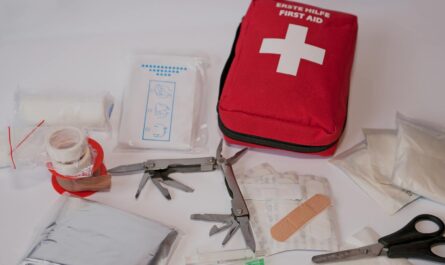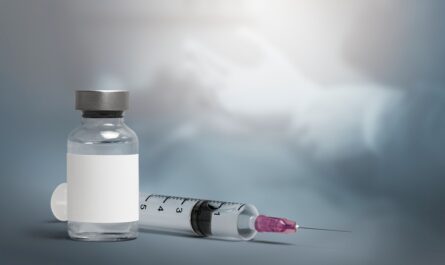The brain health devices market consists of devices including electroencephalography (EEG) devices, magnetoencephalography (MEG) devices, transcranial magnetic stimulation (TMS) devices, intracranial pressure monitors, and others. These devices are used in various applications such as diagnosis of neurological disorders including epilepsy, Alzheimer’s disease, dementia, and other conditions affecting the brain and central nervous system. The demand for brain health devices is increasing owing to rising incidences of neurological disorders and head trauma cases globally. Neuroimaging technologies allow noninvasive assessment of brain structure and functions with high spatial and temporal resolution aiding in accurate diagnosis and treatment of numerous conditions.
The Global Brain Health Devices Market is estimated to be valued at US$ 9,070.5 million in 2024 and is expected to exhibit a CAGR of 7.7% over the forecast period 2023 to 2030.
Key Takeaways
Key players operating in the Brain Health Devices are BrainScope Company, Inc., Bio-Signal Group Corp., Cadwell Industries, Inc., Advanced Brain Monitoring, Inc., Compumedics Ltd., Elekta, DePuy Synthes, Electrical Geodesics, Inc., Medtronic, GE Healthcare, MEG International Services Ltd, Natus Medical, Inc., Neurowave Systems Inc., Nihon Kohden Corporation, and Philips Healthcare.
The key opportunities in the brain health devices market include development of advanced neuroimaging technologies with high precision and portability. Integration of artificial intelligence and machine learning capabilities can help improve diagnosis and treatment.
Advancements in neuroimaging technologies such as functional magnetic resonance imaging (fMRI), magnetoencephalography (MEG), positron emission tomography (PET), and electroencephalography (EEG) allow non-invasive diagnosis of various brain disorders with high accuracy. Portable variants of these technologies are also gaining popularity due to ease of use at point-of-care or home settings.
Market Drivers
The major drivers contributing to growth of the brain health devices market are rapidly increasing incidences of neurological disorders globally coupled with rising awareness. According to the World Health Organization (WHO), neurological disorders affect over 1 billion people worldwide with neurological and mental disorders costing an estimated US$ 1 trillion annually. Additionally, growing geriatric population which is highly susceptible to cognitive decline and increasing investments for neuroscience research also boost the demand for brain health devices globally. Favorable insurance coverage and reimbursement policies also promote the adoption of high-end neuroimaging devices.
Current challenges in Brain Health Devices Market:
The Brain Health Devices market is facing several challenges currently which are hampering its growth potential. Lack of skilled professionals to operate advanced brain monitoring devices is a major issue. Training medical staff on usage and interpretation of data from these complex devices requires substantial time and cost for hospitals. Moreover, high costs of brain health devices like EEG, TMS, ECoG etc. make them unaffordable for many patients. Reimbursement policies regarding these devices vary widely among countries and regions. Rising concerns about data privacy and security with devices linked to cloud networks is also a challenge for this industry. Manufacturers need to address these issues and enhance security measures to win user trust.
SWOT Analysis
Strength: Rapid technological advancements have improved functionality of devices. Real-time monitoring capabilities offer significant advantages over conventional diagnostics.
Weakness: High costs of equipment, maintenance and training requirements restrict wider adoption. Interpretation of brain data is complex and requires experienced neurologists.
Opportunity: Growing geriatric population is increasing incidence of neurological disorders. Rising investments in R&D of innovative devices present new growth avenues. Untapped potential in emerging markets offers scope for industry expansion.
Threats: Stringent regulatory norms delay product approval and market entry. Lack of reimbursement policies in some regions poses commercialization challenges. Intense competition from alternative diagnostic methods.
Geographical Regions
North America currently dominates the global market in terms of value, with a share of over 35% owing to supportive reimbursement policies and large healthcare spending in the US and Canada. The presence of leading manufacturers and availability of advanced treatment options have cemented the region’s top position. Asia Pacific region is expected to witness the fastest growth during the forecast period driven by increasing healthcare expenditures, growing patient population and rising medical tourism in countries like China, India and Japan. Rising awareness regarding brain disorders and improving access to diagnostic services will further aid regional growth.
The Europe market exhibits significant growth and holds approximately 30% value share globally, benefitting from sustained government funding for neurology research and favorable insurance coverage for brain monitoring procedures in key countries like Germany, France and UK. On the other hand, Latin America and Middle East & Africa represent relatively untapped markets and present new avenues for industry players over the coming years supported by expanding healthcare infrastructure and rising personal incomes in many nations.
*Note:
- Source: Coherent Market Insights, Public sources, Desk research
- We have leveraged AI tools to mine information and compile it



